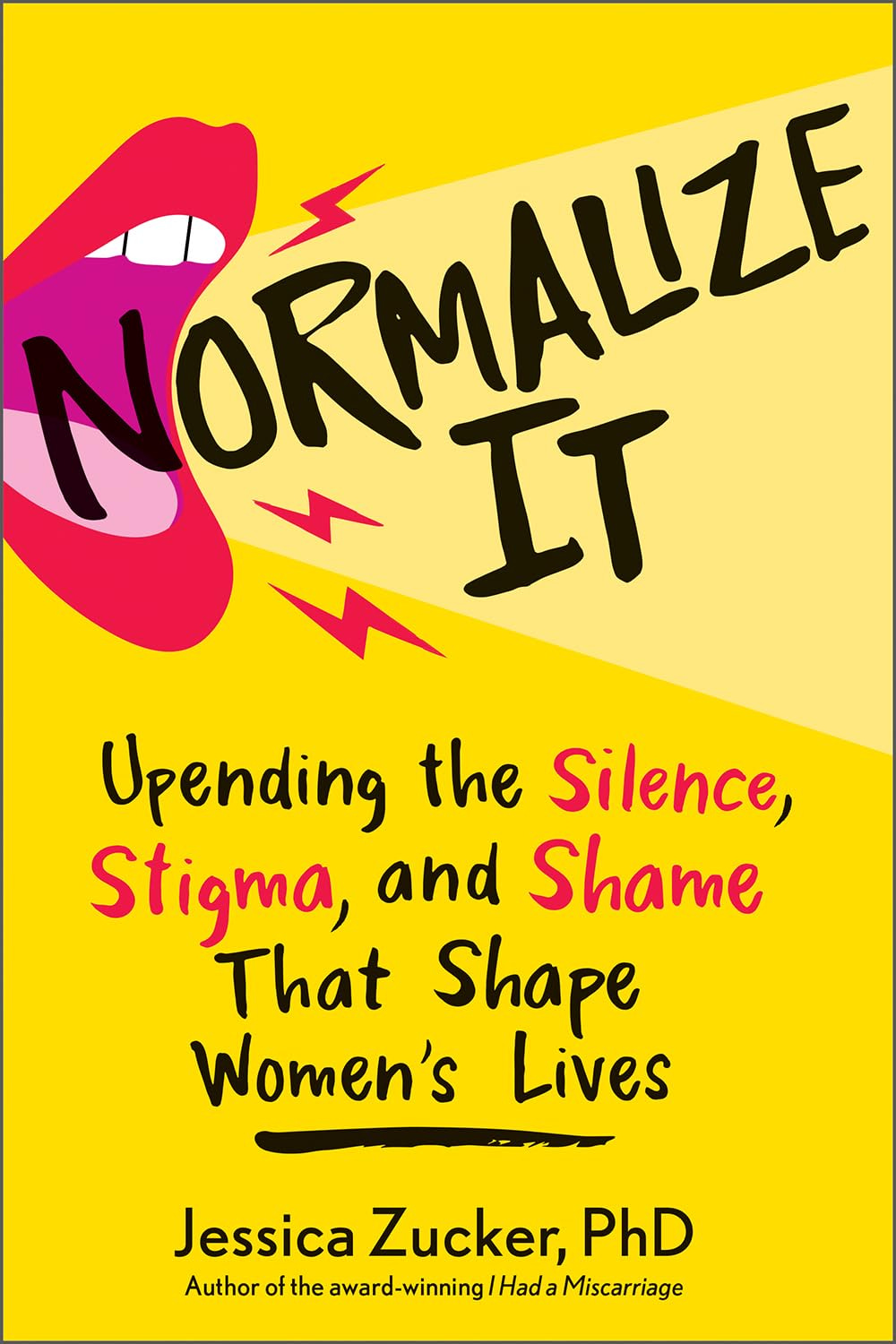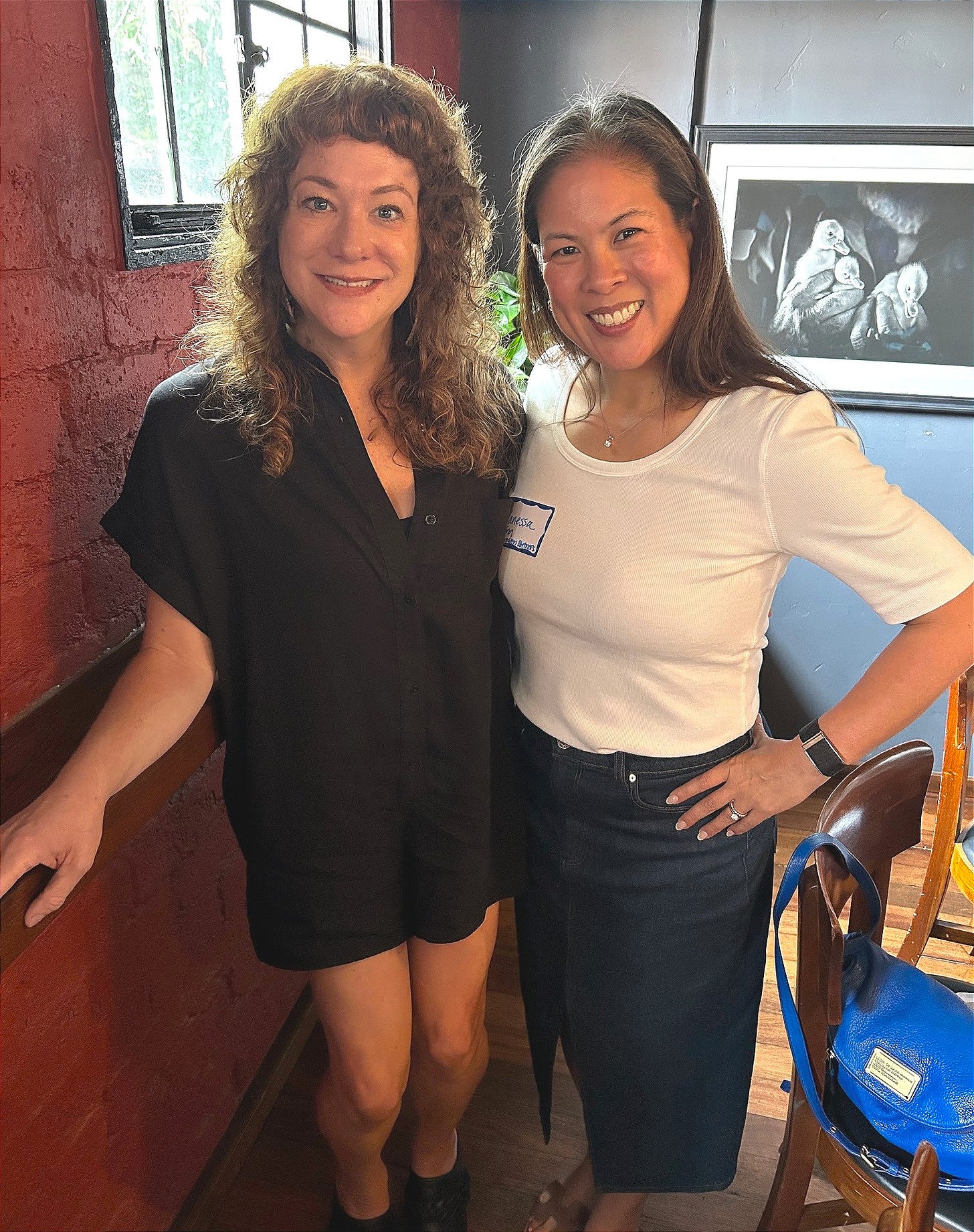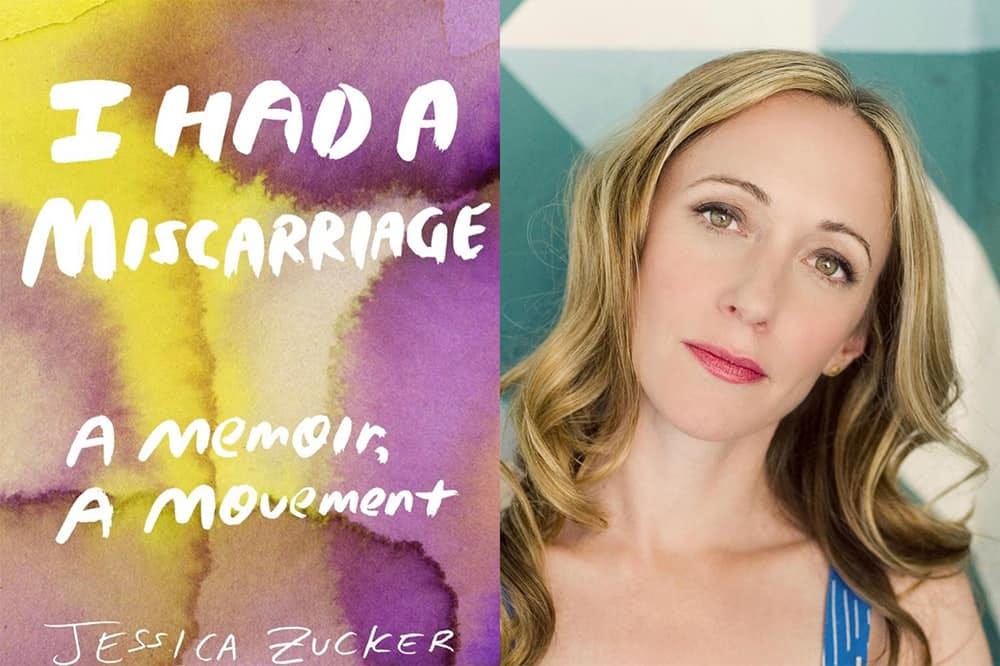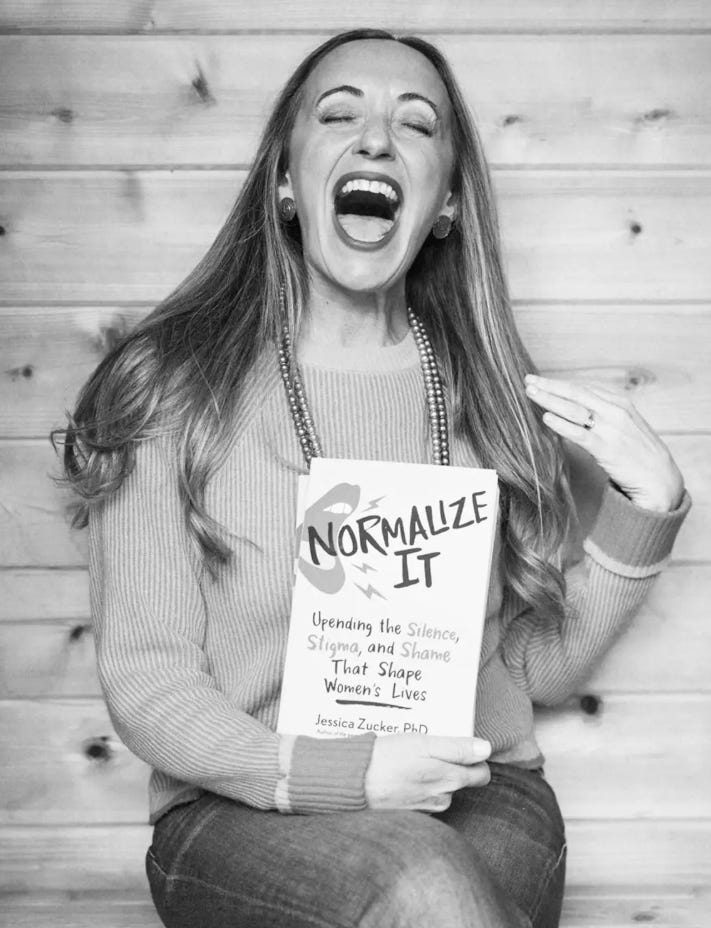Feeling invisible & less employable in midlife?
Free chapter of "Normalize It" by Jessica Zucker, PhD, leader of #IHadAMiscarriage
I had a blast meeting Founding MidstHer Vanessa Ting in person last week in Los Angeles. Vanessa is a fractional health and wellness marketing leader who hosted an event for women's and family health startup founders and investors. Connect with Vanessa here on Linkedin. — Amy
Zoom writing workshops!
Autumn isn't just for kids starting school. Let it be your season for new beginnings too. Embrace possibilities, stimulate your creativity, and reveal hidden talents through the power of writing with Kimberly Lee, author of Have You Seen Him.
Discover your authentic voice in Writing for Yourself—Curiosity, Reflection, and Renewal (September 6) or dive into personal history with Unlocking Memory—A Guided Path to Life’s Stories (4 sessions, October 1–22).
These Zoom-based workshops offer a supportive community where everyone is uplifted. Your story matters—we’ll find ways to tell it beautifully.
Are there any men out there?
Treena Orchard, Ph.D. is an anthropologist and author who researches sexuality, gender, health, and tech. Her timely memoir Sticky, Sexy, Sad: Swipe Culture & The Darker Side of Dating Apps was published in 2024.
Her forthcoming book explores how men grapple with their identity, well-being, and relationships in a time when masculinity is under fire. She's looking for case studies for the book and needs your help. Please share this form with questions for men of all ages and orientations.
You’re invited to Menopalooza!
What are you doing September 28? You’re invited to attend Menopalooza in Chicago, hosted by Founding MidstHers Julie Fedeli and Pamela DeRose, authors of Midlife Upgrade. Speakers include Kelly Casperson, MD, Dr. Somi Javaid, MD, Dr. Sameena Rahman, MD, and more. Learn more here.
The Midst Community classifieds are a benefit of the Founding MidstHer program.

Exclusive excerpt
On feeling invisible and less employable in midlife
Chapter 12 of Normalize It: Upending the Silence, Stigma, and Shame That Shape Women’s Lives
By Founding MidstHer Jessica Zucker, PhD
Nova, whom I’ve been seeing for half a decade, relaxed into my couch while shaking out her golden wavy locks during our morning session. A fashion photographer known for her gritty celebrity cover shoots and glossy yet edgy editorials, Nova was a woman who has not only survived but succeeded in a male-dominated profession through its most misogynistic decades. Her self-assurance showed in the way she carried herself—she was no stranger to challenging stereotypes with an unflinching gaze.
Now in her mid-fifties, Nova originally came to me to talk about her childhood and how it had shaped so much of her path, her tenacity, and her “rebellious” streak. But recently, our conversations had turned to her most recent challenge: menopause.
“It’s equal parts relieving and . . . I don’t know . . . insulting, I suppose,” Nova said with a laugh during a recent session. “It is utterly wild that society thinks women in menopause should just fade into oblivion when that is so far from the truth of our lives.”
Nova was a few years into menopause at this point and was slowly acclimating to (or, at least, begrudgingly accepting) some of the common symptoms many women deal with during this phase: hot flashes, night sweats, a slower metabolism, vaginal dryness. She’d been surprised when she started experiencing symptoms in her mid-forties, and for years, it didn’t occur to her that this could be the start of menopause. “My doctor just kept telling me I was ‘stressed’ and didn’t mention perimenopause to me at all,” she said. Now, her symptoms were fairly well managed. “I switched providers about a year ago—I finally got fed up with the dismissiveness of my longtime doctor who didn’t take my symptoms seriously,” she said, twisting one of the many silver rings latticed over her fingers.
“It’s not the physical changes that bother me so much,” she continued. “Sure, I miss my formerly perky breasts and my seemingly inexhaustible sex drive. I don’t love being a bit thicker around the middle. Or the brain fog. And fuck mood swings. But . . .” She opened her hands. “Life is change! I’ve always embraced that. And I honestly feel a secret thrill about the way my body is changing—it’s seen a lot and it’s pretty miraculous how it just keeps going, constantly evolving.” Nova examined the edge of her midi-length slip dress. “It’s the way that the rest of the world suddenly starts treating you differently that’s so interesting. To feel invisible after all these years of being objectified—my body, the way I moved in it, the attention I got—is both frustrating and also somewhat liberating.”
I was frankly inspired by Nova’s awe at the way her body was subtly changing with age. Getting to that place is a long road for many women, and it was refreshing to see Nova feel so at home with herself during this phase of her life. But even with her positive attitude, the changes in how society saw her had been disorienting. Recently she’d lost out on a job with a brand she’d worked with successfully for years; they had instead hired someone with a fraction of her experience, and she was sure it had something to do with her age.
“I have spent the past three decades photographing rock stars and A-list celebrities and my work is pretty universally known as relevant. Respected. But suddenly I have a 28-year-old photo editor telling me they’re going with someone whom they think ‘understands the point of view’ of their demographic better,” she said.
“Normally I wouldn’t harp on this—it’s not like I haven’t lost out on plenty of jobs in my career. But the thing that drives me absolutely mad is that they didn’t even ask me to pitch a concept. I actually had a lot of ideas about a new aesthetic feel for this particular brand, but they didn’t even consider me. They just wrote me off as irrelevant.
“I am so sick of everyone talking about this phase of life as an end for women,” Nova said, her hazel eyes narrowing. “When it’s so clear that it’s a goddamn beginning.”
If cultural messages tell women that fertility is where womanhood begins, the end of menstruation is billed as the definitive end to women’s cultural relevance. Women in menopause “should” fade into oblivion, the dogma goes, and perhaps even more importantly, they “should” make sure they go quietly.
“Menopause has long been treated as a pre-death, a metamorphosis from a woman to a crone with her exit ticket already punched,” Dr. Jen Gunter, an OB-GYN and the author of The Menopause Manifesto, wrote in an op-ed for the New York Times. “This is because a woman’s worth was measured by her reproductive ability and by extension her femininity, as defined by a narrow, misogynistic standard.”334
More than 2 million women living in the United States go through menopause each year,335 and an estimated 1 billion women globally will be in menopause by 2025.336 But I have yet to meet one of them who feels accurately reflected by the flurry of misinformed stereotypes about what menopause “should” look like. The cultural narrative is getting it decidedly wrong.
Menopause is one of the most profound and significant biological transitions humans go through, a transformation parallel to puberty in its physical and psychological effects. There are up to 48 documented symptoms of menopause, each of which are felt differently by every individual. Yet generations of women were taught not to talk about the experience.337 And while there’s a powerful shift starting there, with conversations about the symptoms of menopause and the available treatments trickling into the zeitgeist, stigma often isn’t so easy to shake. A recent survey of women’s attitudes and knowledge about menopause revealed that most women had little knowledge about menopause symptoms—80 percent said it wasn’t ever talked about in school— and an overall negative view of the experience. Most respondents (which included pre-menopausal women, perimenopausal women, and postmenopausal women) said they were “unprepared” to deal with the changes.338 This isn’t surprising, considering cultural representations of women in menopause are so narrow. Older women are less likely to be featured in film, but when they are represented, they are more likely to be shown as physically unattractive, lonely, and homebound in comparison to older male characters.339
The fear, shame, and secrecy surrounding menopause persist because so many of the symptoms women experience in menopause— hot flashes, mood swings, vaginal dryness, weight gain, loss of libido, irritability, anxiety—are considered taboo and inappropriate (or not worthy) to discuss. For example, nearly half of all women over 50 experience urinary incontinence, but despite its frequency as a symptom, a reported two-thirds of women dealing with incontinence have not talked to their doctor about it.340
The silence has real impacts on women’s health. Perimenopausal women (meaning women in the early stages of menopause, which can last up to 10 years) have a significantly higher risk of depression when compared to postmenopausal women.341 Social support is key for mitigating mental health symptoms (and screening for them), but the lack of awareness and information about menopause, especially among younger people, acts as a deterrent for women getting the support they need.342 In fact, two-thirds of perimenopausal women say they were “blindsided” by the physical, mental, and emotional symptoms.343
Menopause stigma also has a documented impact on relationships. One survey found 73 percent of women who were either going through a divorce or already divorced blamed menopause, at least in part, for the end of their marriage. Yet only a fifth of those women sought help to deal with what they were going through.344
The swirl of misinformation and silence surrounding menopause also rears its head in women’s professional lives. Some women may experience diminished confidence, heightened stress, and inattention that can impact their ability to perform at their peak.345 One study found that 90 percent of perimenopausal and menopausal women said they felt their symptoms had, in at least one instance, had a negative impact on their work; over half said a colleague had noticed a dip in their performance.346
Regardless of how menopausal women are actually performing at work, the perception of women’s performance changes during menopause. A series of studies conducted by organizational psychologists found that full-time workers’ first impressions of a hypothetical menopausal woman included a perception that such a woman would be less confident, even less “emotionally stable,” than women who weren’t in menopause.347, 348 That assumption undoubtedly impacts women’s ability to get hired. Similarly, a large-scale field experiment examined evidence from over 40,000 job applications and found robust evidence of age discrimination against women in the workforce (as compared to older men) whose résumés were less likely to elicit call backs across four different types of jobs.349
“There’s a real ‘cool-factor’ in my job that’s very important,” Nova explained as she continued to unpack the job she’d lost out on. “Perception matters a lot in my business. And a woman stripping off layers on set because she’s having a hot flash is decidedly uncool—at least that’s the way everyone reacted when it happened to me on the last shoot I did for this brand.”
She shook her head. “It’s not like anyone has ever said anything to me directly, but I feel it. I fought so hard to earn respect, to cultivate a reputation that was edgy and relevant in my profession, which was far from welcoming to women when I was coming up, may I add. I honestly feel like I’m doing some of my best work now, but I can feel my relevance fading; I can see people’s expectations of me changing. I am gradually being dismissed as people make unfounded assumptions that I’m less capable, or maybe less hungry, in this stage of life. It seems ironic that as we age, our sense of solidity around self-worth seems to strengthen at the exact same time we are becoming less visible.”
Despite the certainty and commonality of menopause, many women going through it report feeling invisible; 3 out of 4 women surveyed in the UK felt menopause wasn’t talked about enough. An overwhelming 87 percent said they felt overlooked by society, and 41 percent reported feeling “lonely, invisible, irrelevant and dispensable.”350 Call it “Invisible Woman Syndrome.”351
The challenges that accompany menopause and aging are absolutely real, and for many women, they are destabilizing, disorienting, and dysregulating. But for some, there may be a new sense of possibility in menopause, an unexpected liberation. For one, many embrace the end of menstruation. Debilitating period symptoms cost women an average of nine days of productivity each year.352 It’s no surprise then, that many feel a tangible relief when periods end, especially for the estimated 10 percent who suffer from the severe, “life-impacting pain” of endometriosis and its associated stigma.353 For many women, menopause also comes with a sense of psychological freedom.
“If I put the professional bullshit aside for a moment, there is a big part of me that really loves this time in my life. I know myself so much better than I did in my twenties—or thirties or forties, for that matter—when I supposedly had so much more value to offer society. It’s nice to be in a phase where my achievements and brain power are the focus, not my toned legs and lioness mane of hair,” Nova said with a conspiratorial grin. “What a wonder it is to exist in an older body free from near-constant objectification. I didn’t realize what a burden that was until it slowly faded away. The invisibility is actually kind of nice.
“There’s a real sense of peace that’s come over me at this time in my life,” she mused. “I’ve got some hard-won wisdom under my belt at this point and thoroughly enjoy the life I’ve created. I used to go out for dinner, for example, and feel the eyes of men grazing me from head to toe; now I find myself in a hat and sunglasses at the supermarket relishing privacy and no glances whatsoever. After decades of men, and sometimes women, approaching me, it’s my time to marvel at the invisibility that accompanies fifty-somethings in this culture. It feels . . . new.”
Stay tuned: We’ll publish a Founding MidstHer interview with Jessica Zucker soon.












Thanks for the book introduction! That was a great excerpt and I look forward to the interview.